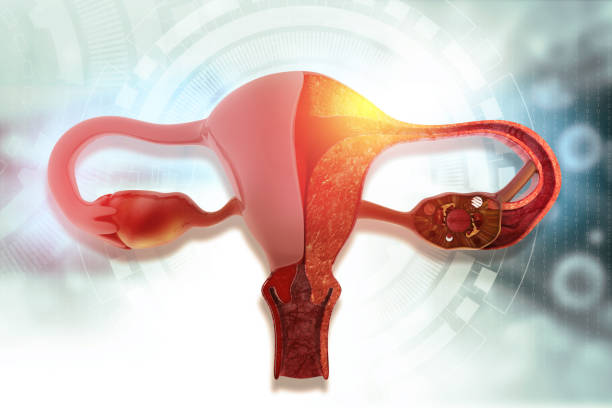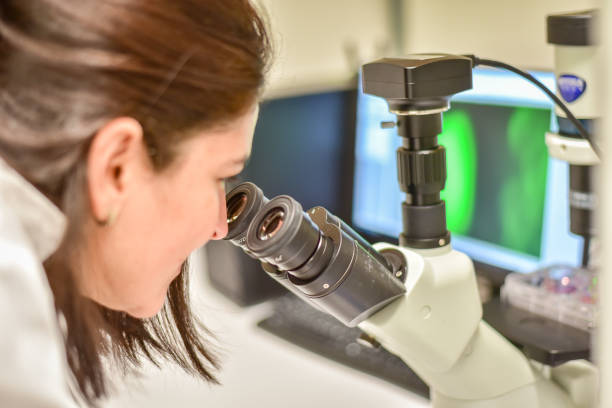Stem Cell Therapy
What is Stem Cell Therapy for Fertility, and Who Needs It?
Stem Cell Therapy for Fertility is a cutting-edge regenerative treatment that uses stem cells derived from the patient’s own body or donor sources to rejuvenate reproductive tissues, improve hormonal balance, and enhance fertility potential.
Who Should Consider Stem Cell Therapy for Fertility?
✔ Women with Premature Ovarian Failure (POF) or Early Menopause
✔ Women with Low AMH Levels & Poor Ovarian Reserve
✔ Women with Thin Endometrial Lining or Chronic Endometrial Scarring (Asherman’s Syndrome)
✔ Women with Recurrent IVF Failures Due to Uterine or Ovarian Dysfunction
✔ Men with Low Sperm Count (Oligospermia) or Non-Obstructive Azoospermia
✔ Couples Who Have Exhausted Traditional Fertility Treatments and Want an Alternative Approach
Types of Stem Cell Therapy for Fertility
There are different types of stem cells used in fertility treatments, depending on the patient’s condition and treatment goals.
1. Ovarian Stem Cell Therapy (OSC) – Restoring Egg Production
✔ Injecting stem cells into the ovaries to regenerate follicle growth.
✔ Stimulates dormant ovarian tissues to produce new eggs.
✔ Helps women with early menopause or low ovarian reserve.
2. Endometrial Stem Cell Therapy – Improving Uterine Health
✔ Used for women with thin endometrial lining or scarring (Asherman’s Syndrome).
✔ Stimulates tissue regeneration and improves blood flow to the uterus.
✔ Enhances implantation success rates in IVF and Frozen Embryo Transfer (FET) cycles.
3. Testicular Stem Cell Therapy – Boosting Sperm Production
✔ Helps men with severe male infertility, including low sperm count and non-obstructive azoospermia.
✔ Stem cells are injected into the testicles to stimulate sperm-producing cells.
✔ Improves sperm motility, concentration, and morphology.
How Does Stem Cell Therapy Work? (Step-by-Step Process)
1. Stem Cell Extraction
✔ Stem cells are collected from bone marrow, fat tissue (adipose-derived), or donor sources.
✔ The cells are processed in a specialized lab to concentrate growth factors and regenerative properties.
2. Stem Cell Injection into the Target Area
✔ The processed stem cells are injected into the ovaries, uterus, or testicles under ultrasound or laparoscopic guidance.
✔ Growth factors and regenerative properties stimulate tissue repair and rejuvenation.
3. Monitoring & Follow-Up
✔ Hormone levels (AMH, FSH, Estradiol) and sperm parameters are monitored over the next 2-3 months.
✔ If ovarian or testicular function improves, natural conception or assisted reproduction (IVF/IUI) can be attempted.
✔ In some cases, a repeat stem cell injection may be needed after 3-6 months for enhanced results.
Success Rates of Stem Cell Therapy for Fertility
✔ 50-70% of women with premature ovarian failure regain ovarian activity after stem cell therapy.
✔ 40-60% of women with thin endometrial lining show improvement in thickness and blood flow.
✔ 30-50% of men with azoospermia develop sperm in their semen after testicular stem cell injections.
✔ Pregnancy rates improve by 30-50% in women undergoing IVF after ovarian or endometrial stem cell therapy.


Benefits of Stem Cell Therapy for Fertility – Why Choose This Treatment?


🌟 Regenerates Ovarian Function for Natural Egg Production
🌟 Improves Endometrial Lining for Higher Implantation Rates
🌟 Boosts Sperm Production & Quality in Men with Infertility
🌟 Enhances IVF & IUI Success by Improving Reproductive Tissue Health
🌟 Minimally Invasive, Natural & Safe – Uses the Body’s Own Healing Factors
Key Aspects of Mental Health & Wellness
Mental health and wellness refer to a person’s emotional, psychological, and social well-being. It affects how individuals think, feel, and behave in daily life, as well as how they handle stress, relate to others, and make decisions. Good mental health enables people to cope with challenges, maintain relationships, and function effectively in work and personal life.
Lorem ipsum dolor sit amet, consectetur adipiscing elit. Ut elit tellus, luctus nec ullamcorper mattis, pulvinar dapibus leo.
Emotional Well-being
The ability to manage emotions, such
as stress, anxiety, sadness.
Cognitive Health
Maintaining clarity in thinking, decision
making, and problem-solving.
Social Wellness
Building and maintaining positive the
relationships with family, friends
Resilience & Coping Skills
The ability to adapt to challenges, setbacks, and life changes.
Mental health is a vital aspect of overall well-being
We think, feel, and interact with the world around us. It encompasses emotional, psychological, and social wellness, helping individuals cope with stress, build relationships, a make decisions. Prioritizing mental health involves self-care, mindfulness, an seeking support when needed, whether through therapy, counseling, or lifestyle changes. Just like physical health, maintaining mental well-being is essential
How do I know if I need mental health support?
We provide counseling, therapy, stress management programs, psychiatric evaluations, medication management, mindfulness training, and wellness programs
What services do you offer for mental health and wellness?
We provide counseling, therapy, stress management programs, psychiatric evaluations, medication management, mindfulness training, and wellness programs
What are common mental health disorders?
We provide counseling, therapy, stress management programs, psychiatric evaluations, medication management, mindfulness training, and wellness programs
How can I manage stress and anxiety?
We provide counseling, therapy, stress management programs, psychiatric evaluations, medication management, mindfulness training, and wellness programs
Pre-Treatment Preparation – How to Improve Stem Cell Therapy Effectiveness?
✔ Follow a Fertility-Boosting Diet (Antioxidants, Omega-3, Folic Acid, Protein)
✔ Take Fertility Supplements (CoQ10, Vitamin D, DHEA, Zinc, Iron, L-Arginine)
✔ Quit Smoking, Alcohol & Reduce Caffeine Intake
✔ Engage in Moderate Exercise & Manage Stress
✔ Improve Blood Circulation with Yoga, Acupuncture, or Massage
Post-Treatment Care – What Happens After Stem Cell Therapy?
✔ Monitor Hormone Levels (AMH, FSH, Estradiol) & Sperm Parameters Every 4-6 Weeks
✔ Try Natural Conception for 3-6 Months Before Considering Assisted Reproduction
✔ Repeat Stem Cell Treatment (if needed) After 3-6 Months for Better Results
✔ Continue a Healthy Diet, Supplements & Lifestyle Modifications
Who is NOT Suitable for Stem Cell Therapy?
❌ Women with Completely Depleted Ovarian Reserve (Postmenopausal Women Over 50)
❌ Men with Testicular Damage Due to Genetic Conditions
❌ Women with Severe Uterine Anomalies (e.g., Uterine Malformations, Large Fibroids)
❌ Patients with Active Cancers or Autoimmune Diseases That May Affect Stem Cell Function

